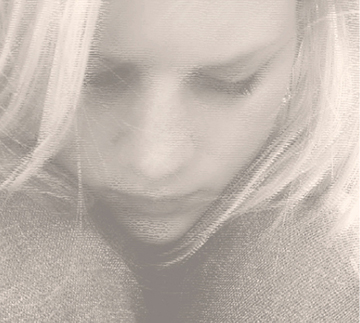Your mental health and emotional well-being is an ever-changing part of who you are. By being self-aware, you are able to take positive steps towards mental health and wellness when the balance between health and illness is disrupted. Positive mental health, feeling well, functioning well and being resilient in the face of life’s challenges improves quality of life and is an important part of your overall health and well-being. Even when there are ongoing limitations caused by mental health problems and illnesses.
Use the tabs on the right to navigate through our programs and resources.
Mental Health & Addictions Contact Information
Mental Health Access - To access Mental Health services in our region, call 1-888-310-4593
If you are living with mental illness, know that you can experience recovery and hope. Mental Health services will assess, provide counselling/treatment, education and referral services to adults, children, seniors and adolescents, with services provided in many communities in Southern Health-Santé Sud.
To contact the Community Addictions Program please refer to Addictions Services.
24 Hour Crisis Line: 1-888-617-7715
Manitoba Suicide Line: 1-877-435-7170
Klinic Crisis Line: 1-888-322-3019
Manitoba Farm & Rural Support Services: 1-866-367-3276
Sexual Assault Crisis Line: 1-888-292-7565
Kids Help Phone: 1-800-668-6868 or Kids Help Phone Website
Problem Gambling Help Line: 1-800-463-1554
Southern Health-Santé Sud Walk-In Counselling
Counselling is a process of helping someone to make the changes they would like to make in their lives.
If you’re struggling with your mental health or with a particularly difficult problem you just haven’t been able to overcome, are presently on a mental health waitlist, or need a refresher session, consider utilizing this service. Individuals 16+ are eligible for this service.
In a one-time walk-in session, you can discuss your struggles, explore coping, and get information about other resources that might help. Anything that is on your mind is a good reason to schedule a drop-in counselling session.
You can talk about:
- A life change or transition
- Grief; loss
- Relationships
- Mental Health/Wellness
- Quality of life struggles
- Alcohol and drug use
All are welcome:
- All ages, 16+
- All ethnicities
- All genders
- All orientations
- All abilities
STEINBACH (450 Main St, Steinbach MB)
Thursdays 9:00am - 3:00pm
PORTAGE LA PRAIRIE (Mental Health Access Services - 524 5th SE, Portage la Prairie MB)
Wednesdays 9:00am – 3:00pm
WINKLER (Pathways - 351 Main St, Winkler MB)
Mondays 9:00am – 3:00pm
Sessions offered on a first-come, first-serve basis.
If you are experiencing an acute mental health crisis – please access crisis services at 888-617-7715
Frequently Asked Questions
How do I seek help about a mental health concern?
If you or someone you care about have concerns about mental health, call Mental Health Access at 888-310-4593. You can self-refer or be referred by a family member, family doctor or school counsellor on your behalf.
Is there a cost to the service?
No. Community Mental Health services are provided through Southern Health-Santé Sud and are paid for by Manitoba Health.
How long will it take to see a community mental health worker?
The Access operator will ask you some questions to decide how quickly you need to be seen. Mental health crisis or urgent concerns will be given priority. Depending on how serious, there may be a wait of a few weeks for your first appointment.
How often will I see a community mental health worker?
The frequency of the meetings is set between you and your community mental health worker who will determine your individual recovery plan.
Where will I meet with the community mental health worker?
The Access office will determine where you will meet in consultation with your community mental health worker.
What if I need to see a psychiatrist or a psychologist?
If necessary, a community mental health worker will assist you in arranging an appointment to see a psychiatrist or a psychologist. Psychiatrists and psychologists in the region are available to see children, youth, adults and older adults.
What happens when I see a community mental health worker?
At your first visit, you will be asked a variety of questions related to your mental health as well as details about your goals and expectations. You will be provided with recommendations to assist you with your recovery. You will work with your community mental health worker to decide whether or not you want to work on the recommended recovery plan.
What if I don’t want to see a community mental health worker in my community?
It may be your preference to see a community mental health worker in a neighboring community:
- services will be provided if available in the alternate location
- information will be provided so that you can work with your family doctor
- information and resources to help you work with a community self-help or support group



